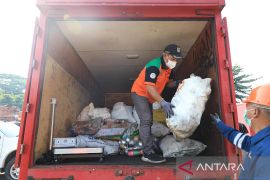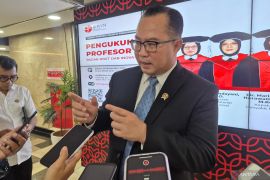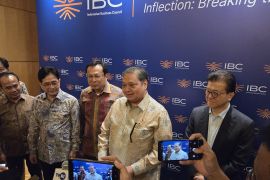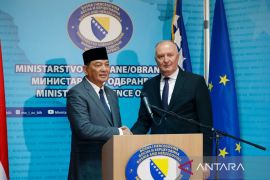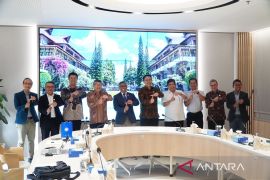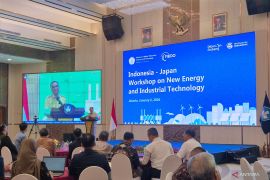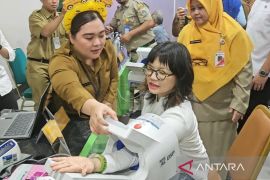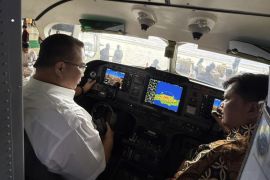"It means the performance of this sector can be above the national growth, and we estimate the growth to reach 7 percent in 2018, in line with growth of startup and consumer needs," the ministry`s Director General for Chemicals, Textile and Miscellaneous Industry, Achmad Sigit Dwiwahjono, said in a written statement received in Jakarta on Thursday.
In 2017, domestic cosmetics industry had grown by 153 companies. Hence, currently, the country has a total of 760 cosmetic companies. Out of the total, 95 percent consists of small and medium enterprises, while the rest are large-scale industries.
Some of the SMEs have exported their products to ASEAN countries, Africa, and the Middle East.
In 2017, the export value of national cosmetics products reached US$516.99 million, an increase from $470.30 million in 2016.
Industry Minister Airlangga Hartarto revealed that the "back to nature" trend opens an opportunity for cosmetics industry to grow, such as natural spa products from Bali.
"These spa products are pretty much in demand in foreign countries. With the strengthening of good branding, our cosmetic products are expected to achieve success in the future," he asserted.
Therefore, the ministry is currently focusing on efforts to improve the competitiveness of the industry by implementing various strategic programs and policies that can strengthen its sector structure.
For example, by entering the 4.0 industrial era, the transformation towards digital technology is valued to create high added value in the country.
"Utilization of technology and digital intelligence from production and distribution to consumer level will provide new opportunities, in order to improve the competitiveness of the industry by changing consumer tastes and lifestyle changes," Hartarto noted.
The Industry Ministry is also putting some efforts on the development of competency-based industry vocational education.
This program brings the concept of linkage and correspondence between the education world and the industrial world to produce a skilled workforce and to compete in the international arena.
Vocational education is expected to be able to create competent human resources, in accordance with the needs of the national industry today.
"So, there is no longer a gap between the needs of industrial workers and the quality of local workforce available," he explained.
Chairman of the Indonesian Cosmetics Association (Perkosmi) Sancoyo Antarikso believes cosmetic product market in Indonesia has the potential to continue to grow in line with the growing trend of usage.
"If previously (people) only (used) two steps, now many consumers apply cosmetics in 5-10 steps, starting from cleanser, serum, and so on", he explained.
Therefore, Antarikso revealed that Indonesian cosmetics companies are required to meet the tastes of today`s consumers to be able to compete with imported products.
"To explore the trend of cosmetic product demand, we actively hold an exhibition every year and invite global players in the field of raw materials as well as packaging and machinery," he added.
Reporter: Sella Panduarsa G
Editor: Yosep Hariyadi
Copyright © ANTARA 2018

